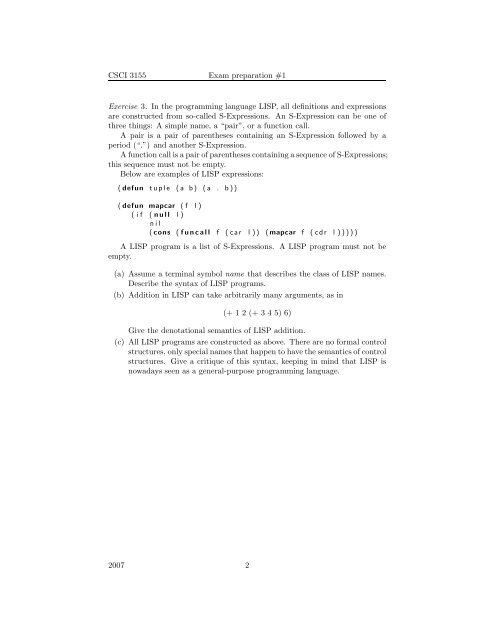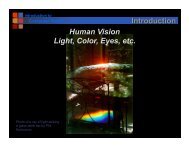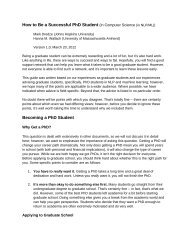CSCI 3155: Principles of Programming Languages
CSCI 3155: Principles of Programming Languages
CSCI 3155: Principles of Programming Languages
You also want an ePaper? Increase the reach of your titles
YUMPU automatically turns print PDFs into web optimized ePapers that Google loves.
<strong>CSCI</strong> <strong>3155</strong> Exam preparation #1<br />
Exercise 3. In the programming language LISP, all definitions and expressions<br />
are constructed from so-called S-Expressions. An S-Expression can be one <strong>of</strong><br />
three things: A simple name, a “pair”, or a function call.<br />
A pair is a pair <strong>of</strong> parentheses containing an S-Expression followed by a<br />
period (“.”) and another S-Expression.<br />
A function call is a pair <strong>of</strong> parentheses containing a sequence <strong>of</strong> S-Expressions;<br />
this sequence must not be empty.<br />
Below are examples <strong>of</strong> LISP expressions:<br />
( defun tuple ( a b) ( a . b ))<br />
( defun mapcar ( f l )<br />
( i f ( null l )<br />
n i l<br />
( cons ( funcall f ( car l )) (mapcar f ( cdr l ) ) ) ) )<br />
A LISP program is a list <strong>of</strong> S-Expressions. A LISP program must not be<br />
empty.<br />
(a) Assume a terminal symbol name that describes the class <strong>of</strong> LISP names.<br />
Describe the syntax <strong>of</strong> LISP programs.<br />
(b) Addition in LISP can take arbitrarily many arguments, as in<br />
(+ 1 2 (+ 3 4 5) 6)<br />
Give the denotational semantics <strong>of</strong> LISP addition.<br />
(c) All LISP programs are constructed as above. There are no formal control<br />
structures, only special names that happen to have the semantics <strong>of</strong> control<br />
structures. Give a critique <strong>of</strong> this syntax, keeping in mind that LISP is<br />
nowadays seen as a general-purpose programming language.<br />
2007 2




